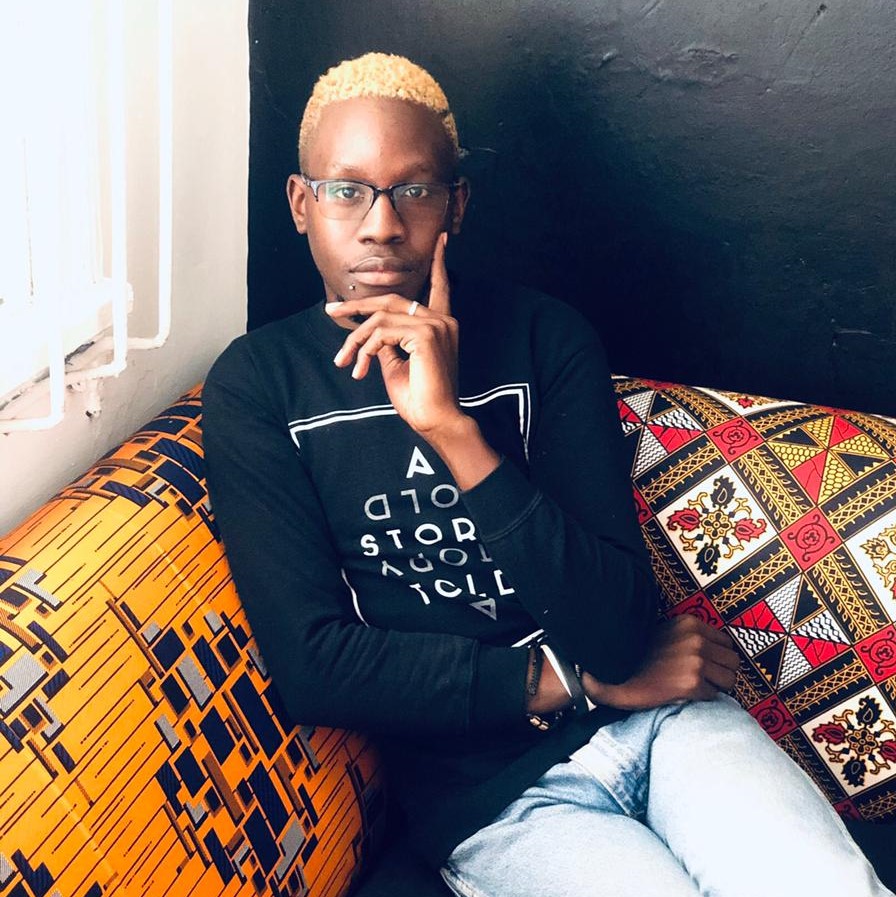“I have always wanted to inspire the younger LGBTQI community through my work and to tell them, ‘You can do this. You are enough despite your sexual orientation.”
Bakari Sibanda
Bakari Sibanda is a 31-year-old fashion designer and founder of #byBAKARI (https://www.bybakari.co.zw/) a local African print designing company. He was born and raised in Bulawayo and now lives in Harare. As a young gay man he hopes his work motivates others in the queer community to hold on despite the hurdles thrown their way.
Bustop TV caught up with the vibrant Bakari Sibanda (B.S) to discuss his business, which is thriving despite challenges posed by the Covid-19 pandemic. The interview has been edited for clarity.
Who is Bakari Sibanda, the man behind #byBAKARI?
B.S: Bakari Sibanda is a fashion entrepreneur, a creative director, and founder of the clothing brand #byBAKARI, which focuses mainly on African print. I am 31 years old, born and bred in the City of Kings, Bulawayo, but now based in Harare. I identify as he.
When was #byBAKARI established, and do you have any business partners?
B.S: The brand was established back in 2018, and I’m the sole founder. I don’t have any business partners, as #byBAKARI has always been a passion project. I haven’t found someone who is as passionate and has the same vision that I have.
Why African print? What motivated this design idea?
B.S: I never liked African print much because of the perception that it is for old people and boring and mainly worn at African weddings until I realized that there are certain specific prints that I actually like, prints that lure me. These are like one percent of African prints.
I then realized there are a lot of people who feel the same way I do. So I was like, okay, let me try and look for prints that are cooler, and talk to the younger generation, and that’s when the brand #byBAKARI started. When it started it was funny how I made a product and everyone said, ‘this is cool’.
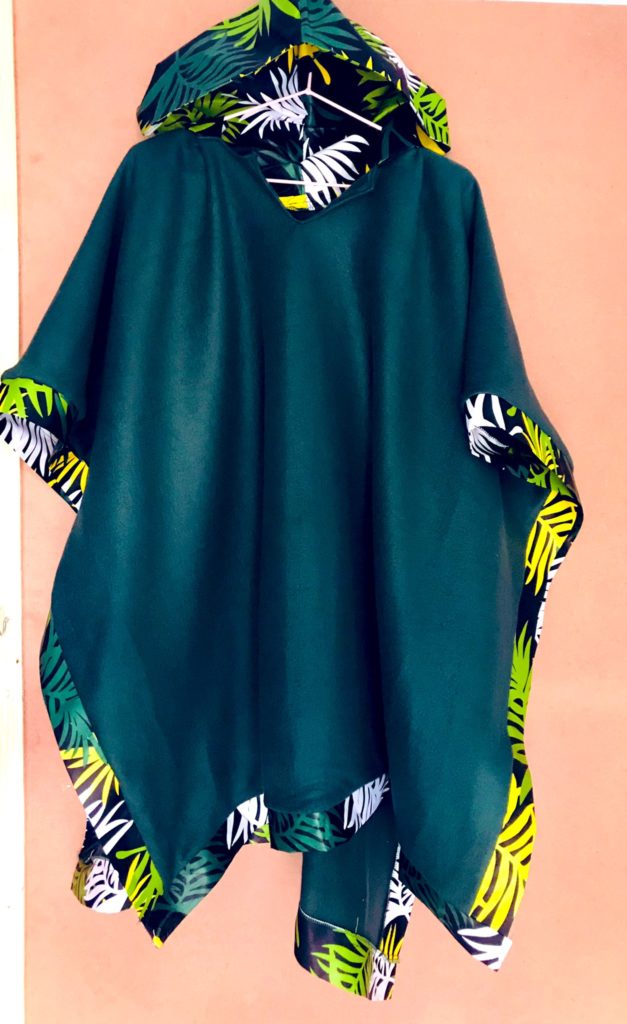
#byBakari poncho 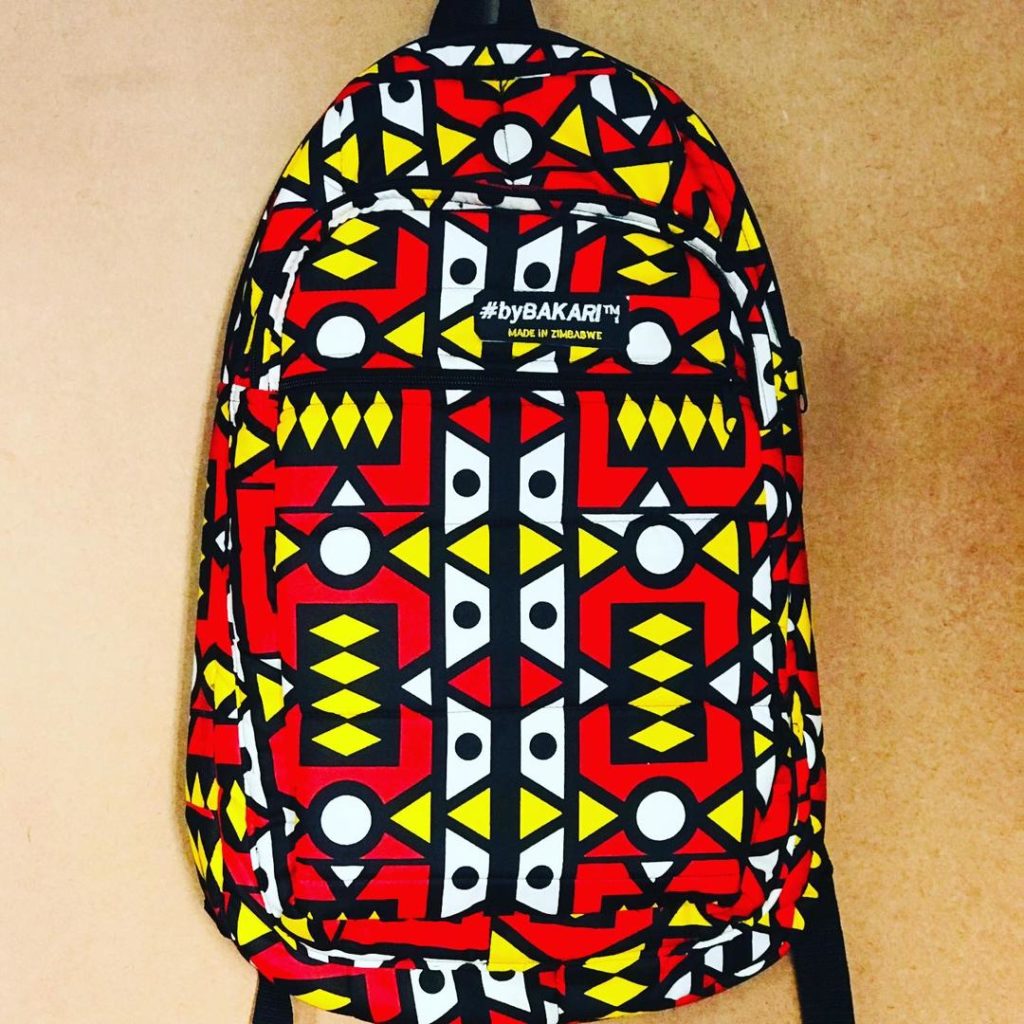
#byBakari backpack 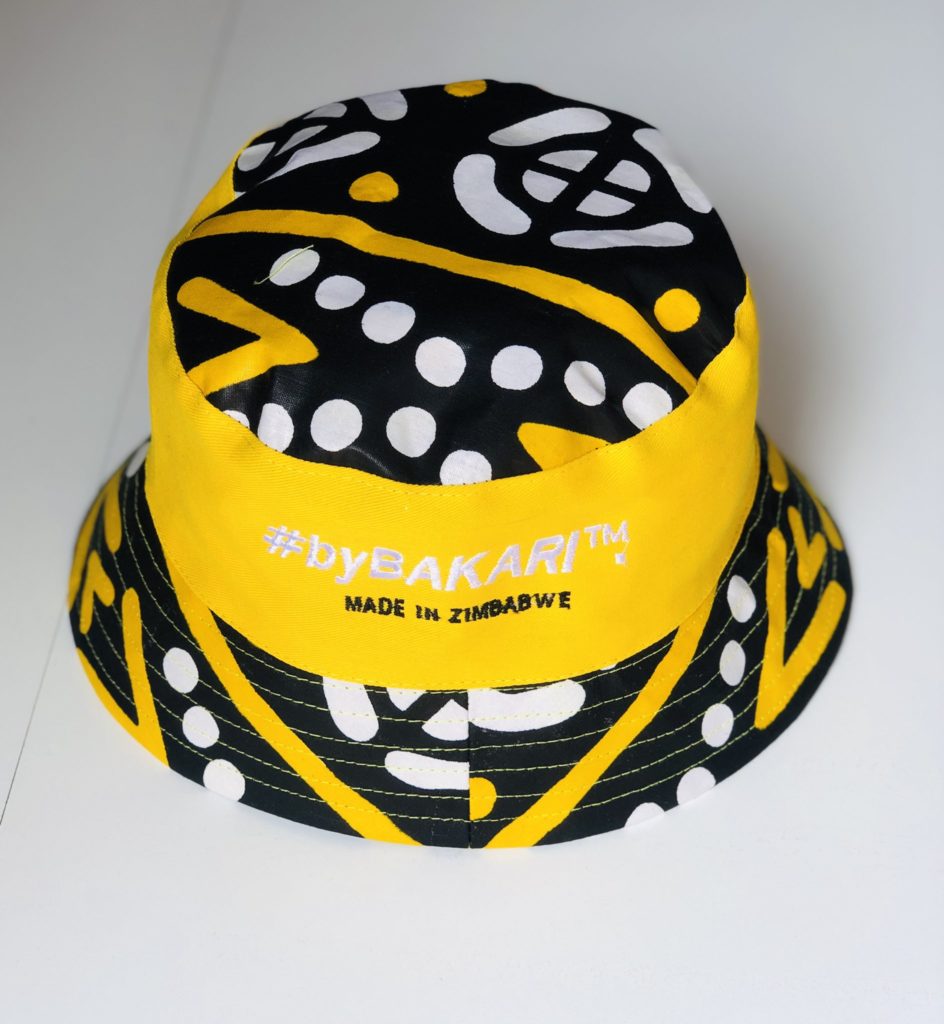
#byBakari bucket hat
Did your childhood have any influence on your decision to venture into African print fashion designing?
B.S: When I grew up, I knew that fashion was something I was passionate about, but you know how it is with parents. When you mention something that has art in it they are instantly against it. So I remember when I went to college, I really wanted to study fashion design but my mum said, ‘that is not going to happen,’ so I ended up focusing on something else. Later, when I realized I was a bit more independent, I thought, ‘let me try and chase something I’m really passionate about.’
Has #byBAKARI expanded to other countries?
B.S: When #byBAKARI started, it was mainly for clients in Zimbabwe. Due to Covid-19, I ended up making use of social media, which reaches basically everyone around the world. So that’s how the brand has expanded to different countries. Now I ship stuff to the UK, Canada, Australia and one of my very frequent clients is based in Jerusalem, Israel. I feel the brand can expand even more where we get to supply more countries, and that is what I am working on. There are challenges, but I am hoping to overcome them soon.
Who is your role model and why?
B.S: My biggest role model is the significant South African designer David Tlale. His life story resonates a lot with me because when he started college, he started on a different path, but he realized right in the middle that this was not for him and he left and joined fashion designing. Now he is one of the top designers in South Africa, and he inspires me a lot.
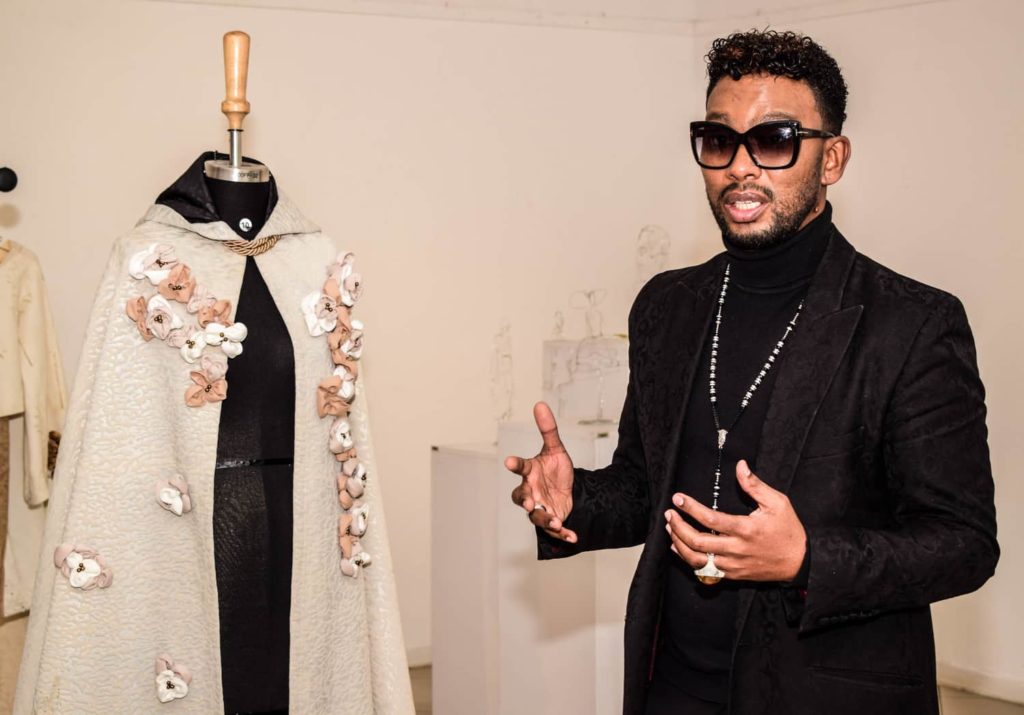
How do you ensure that your business is a success?
B.S: It’s always about consistency and making sure you know your clientele and trying to keep up with what they want. So, basically, it’s always been consistency, risk-taking and perseverance. From the time that I started the brand I have had downs but I did not give up because I am very passionate and I have people who look up to the brand.
What are some of your greatest achievements as a fashion designer?
B.S: I have been able to dress some big names in the entertainment industry in Zimbabwe. I was part of the team that dressed the production by Roki featuring Kofi Olomide and also Tytan and Takura. Getting to see big names appreciate a local brand that I own, that has my name on it, is really amazing.
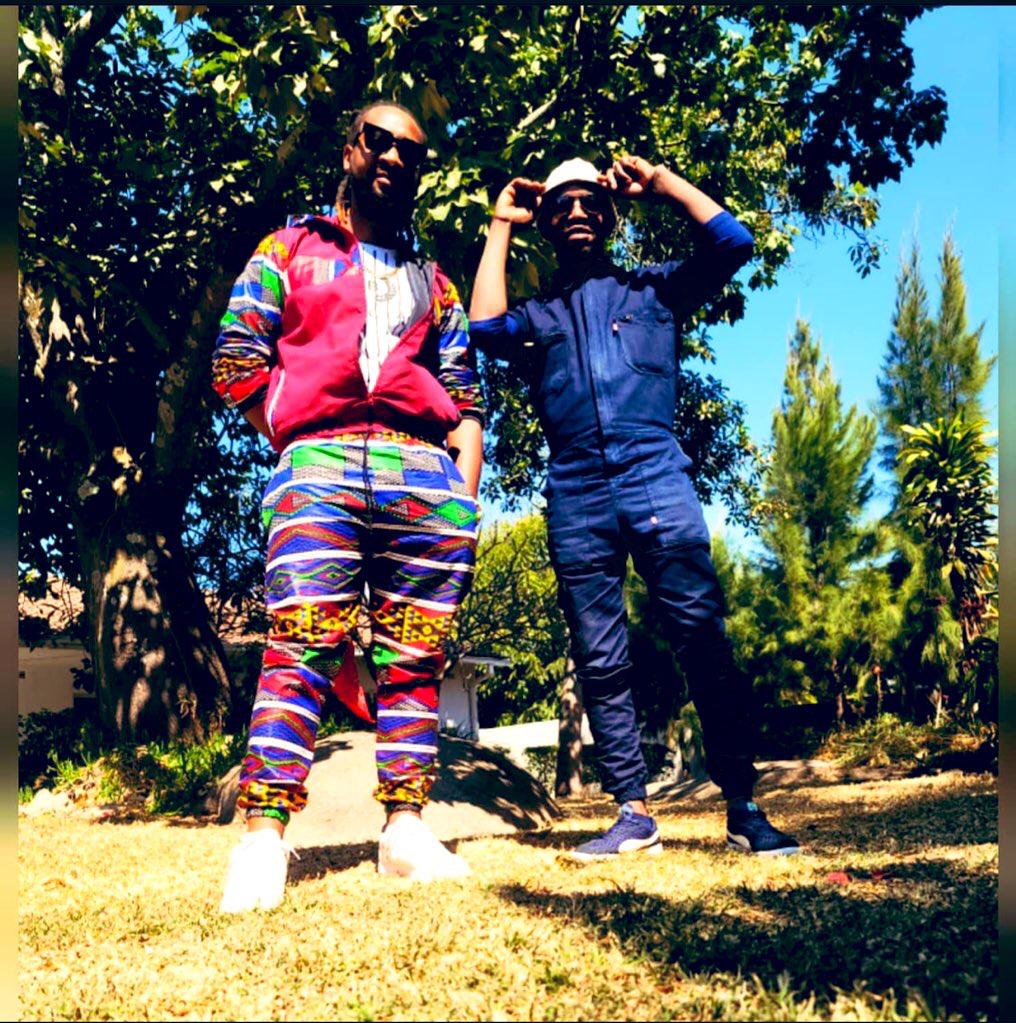
Roki 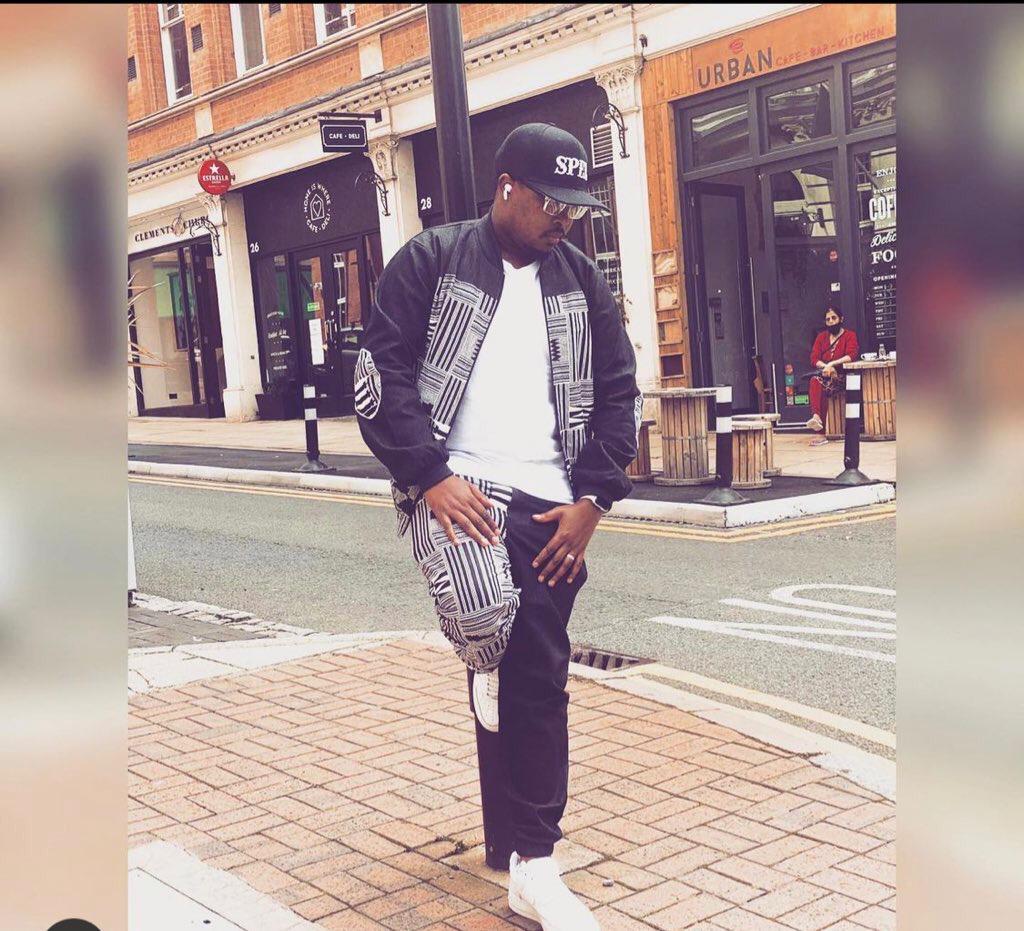
Tytan 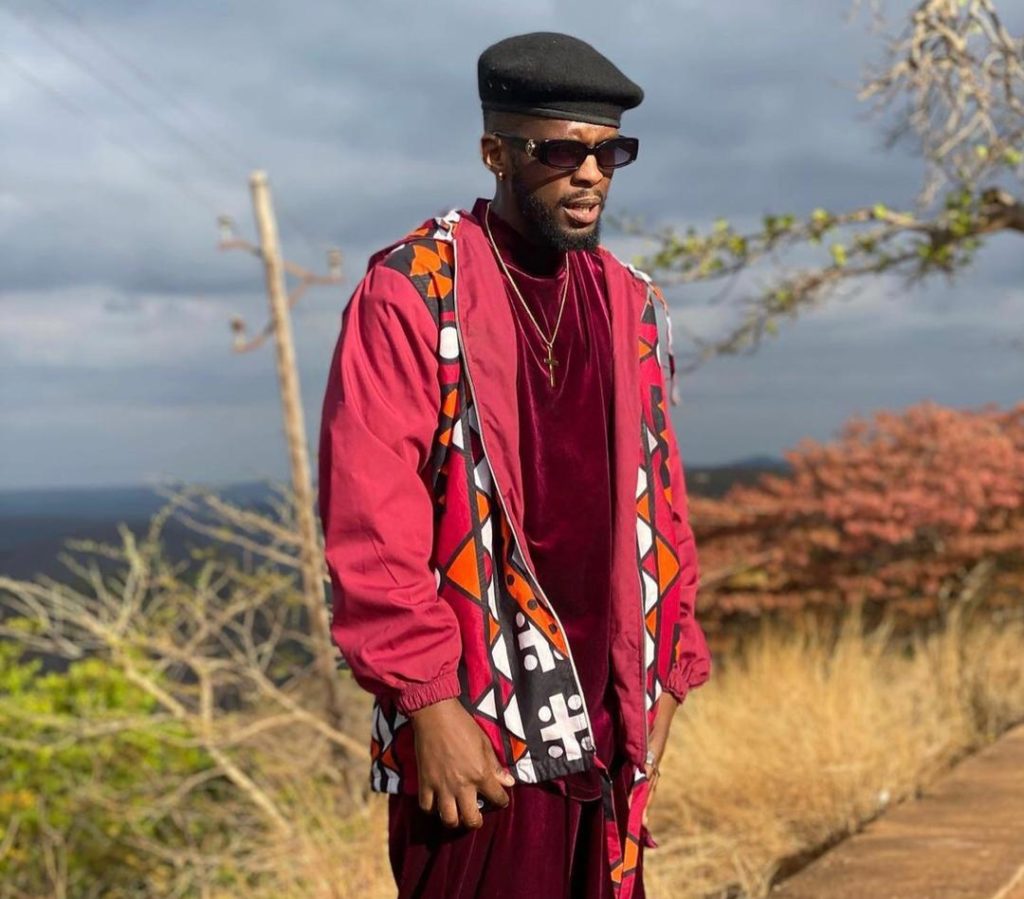
Takura
Has your sexual orientation affected your business in any way?
B.S: For some reason, people always believe that every male designer is not straight. As the LGBTQI community, we are known to be very creative people. So you would have people who would say, ‘I feel like I can trust you because your community is hardworking and creative.’ I have been very lucky that I haven’t had many negative impacts on my business because of my sexual orientation.
How do you hope to inspire others in the LGBTQI community through your work?
B.S: From the time I came out and accepted myself, it wasn’t a very easy road. When I finally managed to deal with everything that was going on, when I came out to my family and my friends and started to accept myself, my dream has always been to inspire the younger LGBTQI community, because it’s not easy living in a country where we all know how we are treated every single day. So, I’ve always wanted to inspire the younger generation through my work and to tell them, ‘You can do this. You are enough despite your sexual orientation.” I’ve always tried to make sure that through my work I get to inspire people. Now my brand is known almost everywhere. The fact that I managed to do it, it means that anyone else from the LGBTQI community can do it as well. It can be hard. It always has its challenges, but I feel like we are one of the strongest people. We face persecution every day, we face discrimination, but at the end of the day we pick ourselves up.
How did your business survive the Covid-19 pandemic? What are some of the challenges that came with the pandemic?
B.S: The pandemic came with a lot of challenges because it hindered the expansion of my business. I have had challenges with shipping stuff out of the country because of the travel bans. At the same time I realized that during the pandemic, everyone turned to the internet and that’s when I decided to open my online store. Then I use social media; Twitter, Facebook, and Instagram so clients can reach me.
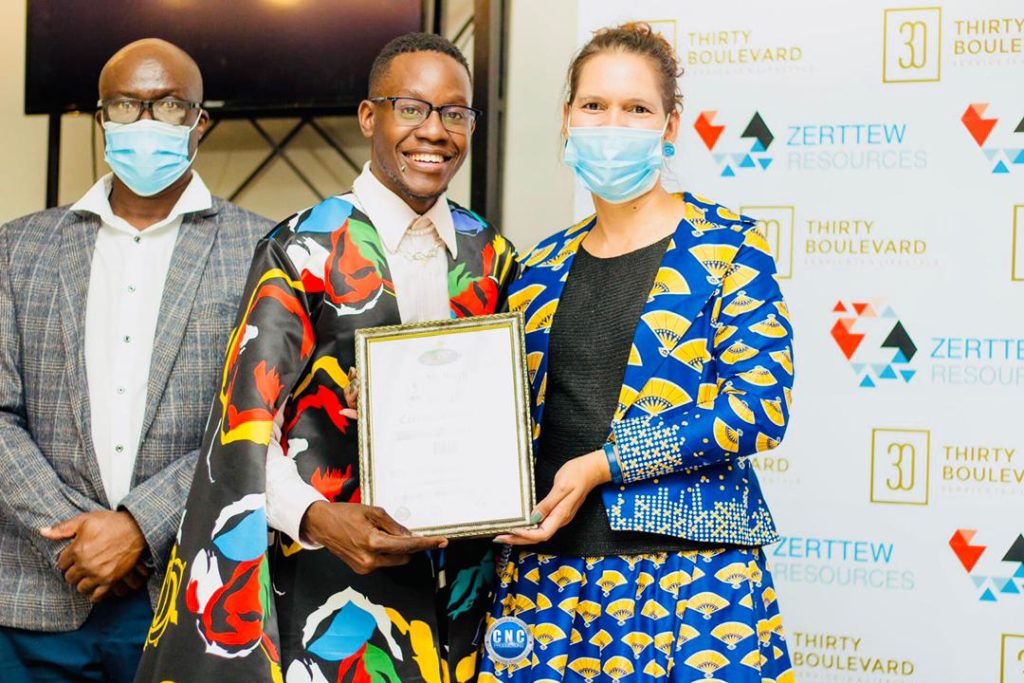
Besides being an entrepreneur, you also do advocacy work for the LGBTQI community. How do you create a balance?
B.S: As an entrepreneur, I get to meet a lot of people and have a larger audience, mostly on social media, so I use my pages for my advocacy work. I get to engage with people and show that people in the LGBTQI community are more than just our sexuality. We are capable of developing the society. People need to understand that as much as I’m part of the LGBTQI community, I still am able to contribute just like everyone else to the betterment of our society.
‘This article was produced with the financial support of the European Union. Its contents are the sole responsibility of <BustopTV> and do not necessarily reflect the views of the European Union’.
